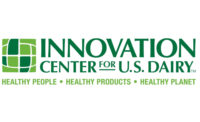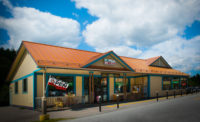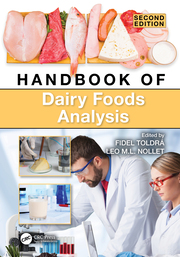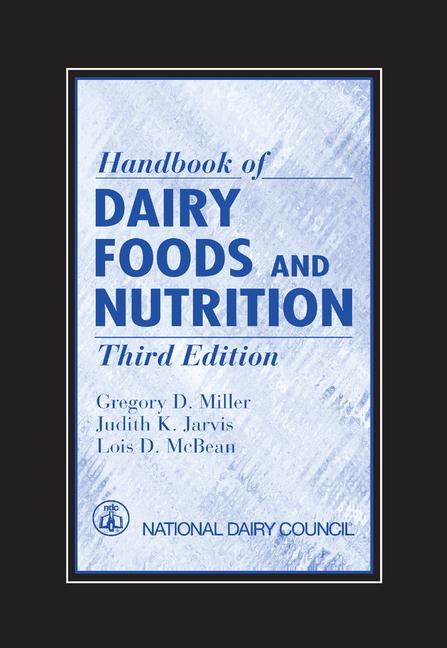Innovation Center for U.S. Dairy names winners of 10th annual Sustainability Awards
Almost 80 winners from more than 270 nominees have been recognized over the past decade.

The U.S. Dairy Sustainability Awards program — celebrating its 10-year anniversary — has a new class of seven winners that demonstrate excellence in sustainability and contributions to the industrywide 2050 Environmental Stewardship Goals, as well as positive efforts in communities. The awards, hosted by the farmer-founded Innovation Center for U.S. Dairy, Rosemont, Ill., recognize exceptional farms, businesses and partnerships for their socially responsible, economically viable and environmentally sound practices and technologies that have a broad and positive impact.
Almost 80 winners from more than 270 nominees have been recognized over the past decade, the Innovation Center for U.S. Dairy said.
“Every class of winners is special, and this year’s is no different as we celebrate a milestone anniversary for the awards,” said Barbara O’Brien, CEO of the Innovation Center for U.S. Dairy. “Our 2021 winners put U.S. dairy’s great diversity on full display with farms and businesses of all sizes, from coast to coast, showing how dairy is an environmental solution.”
The awards are judged by an independent panel of dairy and conservation experts who consider innovation, scalability and replicability when evaluating nominations. Among the criteria to apply for the awards is participation and good standing in the National Dairy Farmers Assuring Responsible Management (FARM) animal care program and agreement to participate in the FARM Environmental Stewardship online tool for determining their greenhouse gas and energy footprint. Both initiatives are part of the U.S. Dairy Stewardship Commitment, U.S. dairy’s social responsibility pledge to consumers, customers and other stakeholders, the Innovation Center for U.S. Dairy said.
“This is dairy’s time to shine once again,” said Marilyn Hershey, Pennsylvania dairy farmer and chair of the Dairy Management Inc. board of directors. “These winners all provide the tangible evidence that our industry produces a nutritious product with great care and respect for our planet, animals and our natural resources.”
According to the Innovation Center for U.S. Dairy, the 2021 U.S. Dairy Sustainability Awards winners are:
Outstanding Dairy Processing and Manufacturing Sustainability
Rogue Creamery, Central Point, Oregon. A small creamery in Southern Oregon known for award-winning cheeses, Rogue Creamery has a clear mission: “people dedicated to sustainability, service and the art and tradition of creating the world’s finest handmade cheese.” In October 2019, Rogue Creamery was rewarded for its high standards as the first American cheesemaker to be named Grand Champion at the World Cheese Awards. But owner David Gremmels’ commitment to excellence extends far beyond cheesemaking to business practices that create a culture around doing the right thing.
Driven to use business as a force for good, Rogue Creamery became Oregon’s first certified B Corporation in 2014, inspiring other like-minded businesses to follow suit and pursue the rigorous certification, the Innovation Center for U.S. Dairy noted. It has led the way in renewable energy and waste reduction. And when wildfires caused devastation and evacuations in Southern Oregon in 2020, Rogue Creamery created a campaign to donate thousands of pounds of cheese to area food banks. This creamery’s commitment to quality, sustainability and doing the right thing has substantial, sustainable impacts within its community and beyond — enlightening partners, neighbors and customers worldwide.
Outstanding Dairy Farm Sustainability
Red Sunset Farm, Mifflintown, Pa. Since starting their farm two decades ago, Dave and Marie Graybill have been motivated by sustainability. In a region where dairy is scrutinized for its role in the Chesapeake Bay recovery, the Graybills implemented more than 30 conservation practices — including buffer strips, contour farming, enhanced wildlife habitat and structural improvements such as enhanced manure storage and stormwater diversions — designed to make the farm an environmental and economic asset.
The conservation practices play important roles in reducing nitrogen, phosphorus and sediment losses, key barometers in the Bay restoration effort, while leading to operation cost savings and improved soil quality, the Innovation Center for U.S. Dairy said. A rough assessment of the dairy’s no-till, cover crop and nutrient management practices shows reduced annual losses of 2,443 pounds of nitrogen, 116 pounds of phosphorus and 255,000 pounds total of suspended solids.
MVP Dairy LLC, Celina, Ohio. The McCarty and VanTillburg families believe dairy is an environmental solution. Together, they created MVP Dairy LLC, an Ohio dairy farm that’s laying the groundwork to achieve carbon neutrality and sharing their learnings along the way. Their holistic approach to sustainability focuses on manure management, soil health, biodiversity and animal welfare.
MVP Dairy’s patented, municipal-style manure management system produces an estimated 60% less emissions than a traditional system and creates a water source to irrigate cropland, the Innovation Center for U.S. Dairy noted. The dairy’s regenerative farming practices resulted in a reduction of 6,755 tons of CO₂e last year, which is equivalent to the average yearly energy use of 662 American homes. MVP Dairy also was able to sequester 1,842 tons of carbon and save 5,499 tons of soil from erosion, an equivalent to 344 dump trucks of soil.
Through an extensive biodiversity program, the dairy is home to pollinator habitats, dedicated wetland areas, buffers, new trees and wildlife boxes. MVP Dairy’s innovative practices and top-notch animal care can be seen first-hand at their on-farm Dairy Learning Center Inc., which offers farm tours and interactive displays.
Goodrich Farm, Salisbury, Vt. With environmental stewardship and economic viability in mind, in 2020 Goodrich Farm, alongside its partners, launched a 1.32-million-gallon anaerobic digester that can produce 180,000 Mcf of renewable natural gas annually. It is one of the largest anaerobic digesters in the United States, the Innovation Center for U.S. Dairy noted.
This partnership brings together Goodrich Farm, Vanguard Renewables (developer, owner and operator of the digester), Vermont Gas Systems and Middlebury College, which will purchase much of the renewable natural gas (RNG) produced at the digester. At Goodrich Farm, methane-emitting cow manure and food waste are recycled into carbon negative RNG. The RNG travels by pipeline to Middlebury College’s nearby power plant, bringing the college closer to reaching its 10-year goal to power the campus with 100% renewable energy.
Goodrich Farm, managed by siblings Chase and Danielle Goodrich, is a multi-generational farm that milks 900 cows while caring for more than 2,000 acres of land. The digester provides the farm with a diversified income stream in addition to high-quality, low-carbon liquid fertilizer, animal bedding and a reduction in the farm’s carbon footprint. The facility also features the first phosphorus removal system in Vermont, which protects the Otter Creek Watershed that feeds into Lake Champlain, one of the largest U.S. freshwater lakes.
Outstanding Supply Chain Collaboration
Grande Cheese, Lafayette Ag Stewardship Alliance, Farmers for Sustainable Food, Southwest Wisconsin. Demonstrating the sustainability of farming practices to farmers, customers, the agricultural supply chain, communities and regulators has become critically important. That’s what drove this project by Farmers for Sustainable Food, Grande Cheese Co. and a farmer-led group called Lafayette Ag Stewardship Alliance. With support from various stakeholders, they developed a replicable framework for farmer-led sustainability projects that is a handbook to help farmers determine what conservation practices are most useful for their individual farms, document the environmental and financial effects and demonstrate the value of sustainability throughout the supply chain, the Innovation Center for U.S. Dairy said.
The framework was then applied in a pilot project in Wisconsin using a “milkshed” model that encompassed farmers, a cheese processor, a brand and other partners. As a result, participating farmers better understand the effects of conservation on soil health and water quality, as well as on their businesses. The needs of Grande and its customers are being met; the local community has a window on agriculture’s commitment to sustainability; and farmers and partners elsewhere have access to a framework to apply in other projects.
Outstanding Community Impact
Calgren Dairy Fuels LLC, Maas Energy Works Inc. and 15 California Family Dairy Farms. By significantly reducing greenhouse gases on dairy farms while generating renewable transportation fuel, this unique California partnership is a nationwide leader in climate-smart dairy farming. Calgren Dairy Fuels’ 22-plus miles of underground pipeline link 12 dairies that send biogas from on-farm digesters — and two additional dairies that haul biomethane via tube trailers — to its centralized conditioning facility in Pixley, Calif. An additional dairy supplies manure slurry to a digester at the Calgren conditioning facility for biogas production.
After upgrading this dairy biogas, Calgren injects it into a utility pipeline owned by Southern California Gas Company (SoCalGas), the nation’s largest natural gas distribution utility. This dairy-sourced renewable compressed natural gas (R-CNG) is made available as fuel for heavy-duty trucks, replacing 3 million gallons of existing fossil-fuel diesel with near-zero emissions from CNG engines, the Innovation Center for U.S. Dairy noted. Each year, 150,000 tons of CO2 greenhouse gasses are captured from more than 70,000 cows and heifers. Additionally, more than 75 full-time equivalent jobs have been supported, and another 18 miles of pipeline are under construction to add 10 more dairies to the cluster.
Outstanding Community Impact – Pandemic Response
Dairy West (Idaho and Utah). In the spring of 2020, Dairy West spearheaded the Curds + Kindness initiative to relieve COVID-19-related supply chain pressures and deliver dairy products to hungry people in communities throughout Idaho and Utah. The industrywide effort matched excess milk supply with available regional processing, allowing Dairy West to purchase, at cost, and donate more than 1 million pounds of product, which helped 500,000-plus families across the region, the Innovation Center for U.S. Dairy said. In addition to donating products through food banks, food pantries and schools, Dairy West shared the joy and goodness of dairy with front-line workers, people in shelters and youth in need through community activations in June and December.
A formal celebration of the winners is tentatively scheduled in conjunction with the Dairy Sustainability Alliance Fall Meeting in Las Vegas, Nov. 18-19, the Innovation Center for U.S. Dairy said. For information about the industry’s sustainability work and the dairy checkoff, visit www.usdairy.com.
Looking for a reprint of this article?
From high-res PDFs to custom plaques, order your copy today!






